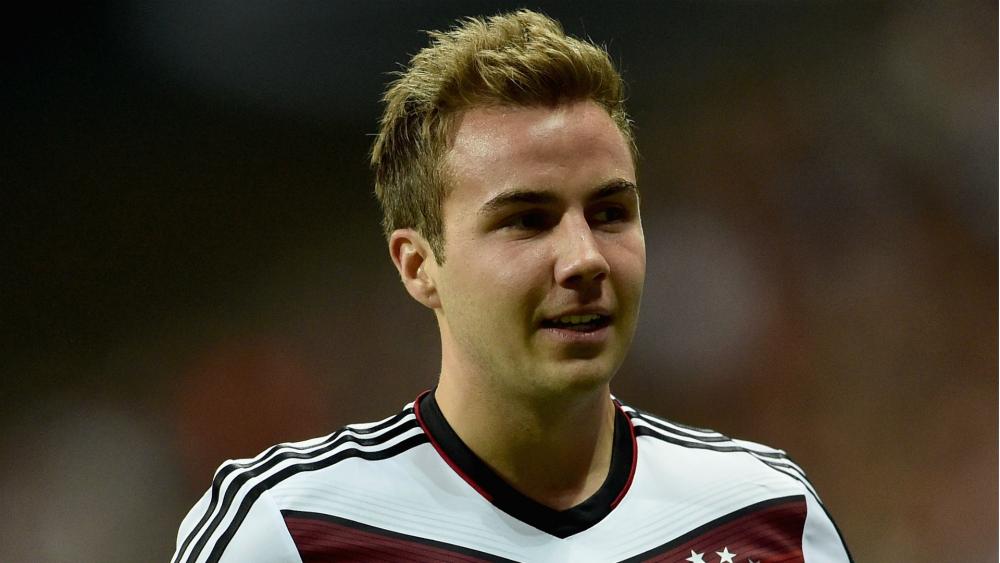Team GB at London 2012: The chaotic story of the short-lived men's Olympic team
With the Olympic games on home soil, Team GB excitedly put forward a men's football side - but Stuart Pearce's team were fighting fires off the pitch as much as on
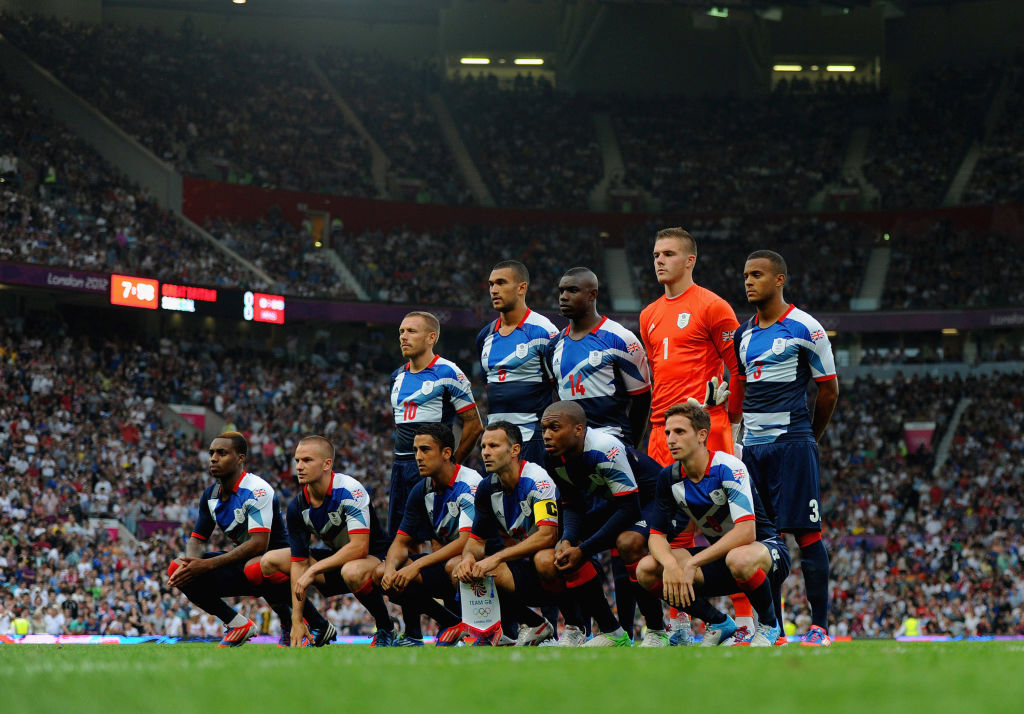
There was something off about watching David Beckham steaming up the Thames on a speedboat. And not that it looked like he was driving the thing. One missed turning and Goldenballs could end up in the North Sea; a nautical tribute to Mike Bassett's ill-fated open-top bus parade.
For the London 2012 opening ceremony, Becks was appointed chief carrier of the Olympic torch, for its journey up the river to Stratford's Olympic Stadium. No one really asked why - other than the fact that he was overlooked from playing for Britain at the games. The Olympics could - should, even - have been the perfect full-stop for a tumultuous but iconic international career.
Yet if the ex-Galactico had a bumpy past with his national side – retaliations to redemption, metarsals to McClaren snubs – then Great Britain's history with the Olympics was fit for off-road cycling. Britain entered a club side in 1900 and won three of the first four gold medals on offer in football. Matt Busby was the last manager to take Britain to a London Olympics, while other countries have prioritised the games over the World Cup in their history (India, for example, in the 1950s refused a World Cup invitation).
Team GB did what the British do best – and went ahead against all advice
Britain regularly entered the Olympics up until 1960 - and then never again. Was it England's emergence as World Cup winners, that led to drop-off in participation? Well, no. The home nations just didn't approve of GB.
As if the local geopolitics of a former empire weren't tricky enough to navigate, century-old Football Associations – who'd spent most of their existence battling across the border – made the whole shebang a lot harder. “Because it's London” had no significance, come 2012. This was like uniting Manchesters United and City, plus Liverpool and Arsenal, for good measure, all for someone else's vanity.
It was fair enough for the Scottish, Northern Irish and Welsh all to question the concept. As early as 2006, a joint statement was issued by the official fan clubs of all four Home Nations opposed to the plan - and funnily enough, Sepp Blatter's word that he'd protect all four countries' FIFA status did little to quell the concern. Team GB's prospective chances seemed somewhat dashed from the get-go over this; it felt a little like starting a relationship without all the parents' blessings.
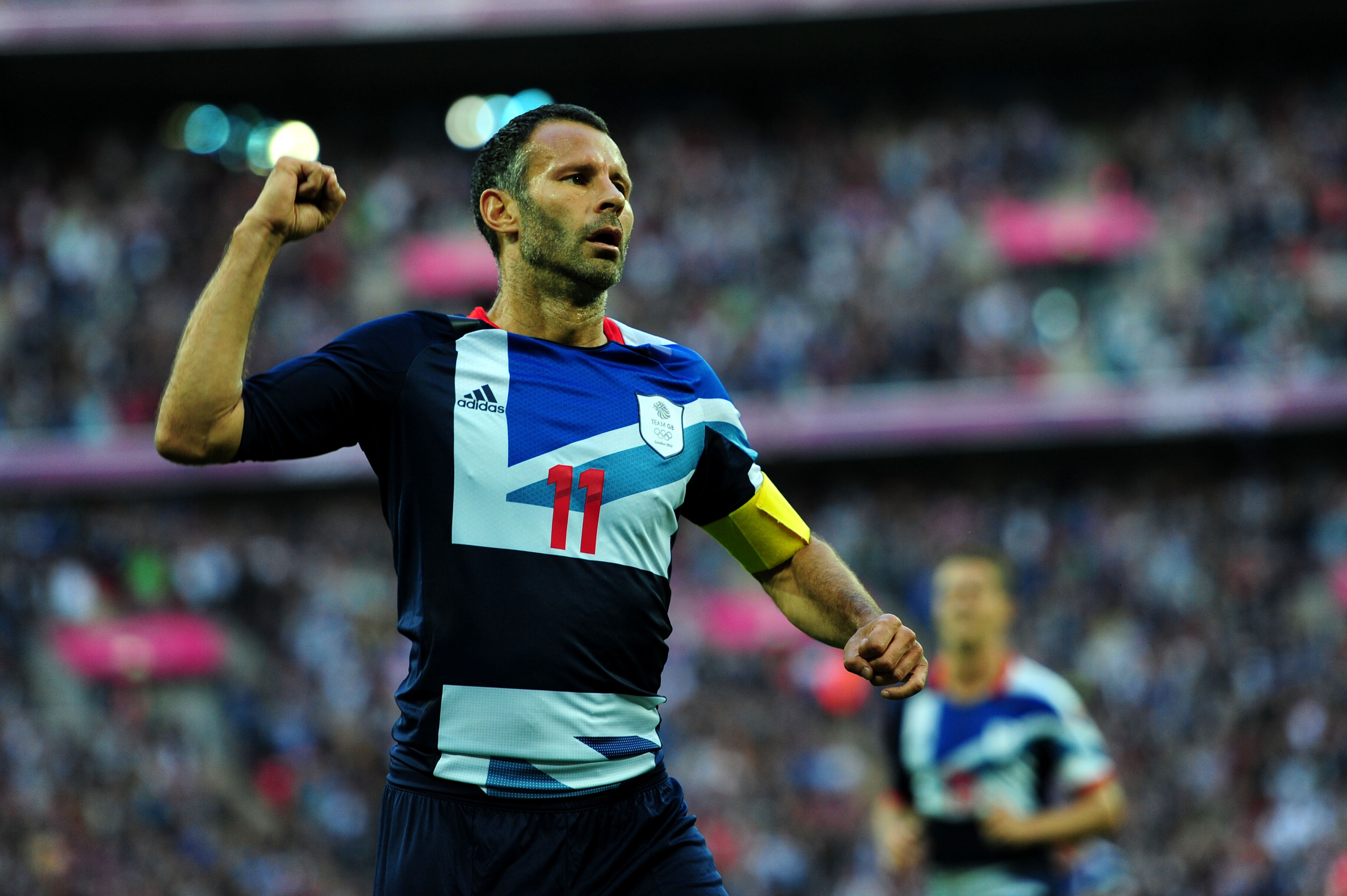
But Team GB did what the British do best and went ahead against all advice anyway. The Home Nations all stood firm, claiming they had no problem with England going to the party alone. There was talk of whether just picking English players was discriminatory before the FA announced that's what they'd do – probably just to avoid arguments.
Get FourFourTwo Newsletter
The best features, fun and footballing quizzes, straight to your inbox every week.
As if there weren't enough spanners clogging the machinery, though, Welsh players Aaron Ramsey and Gareth Bale then began announcing they'd be up for joining the squad, while England's participation in Euro 2012 – however short it could have ended up being cut – meant that there were even fewer players to choose from.
Despite the limited pool, legendary left-back Stuart 'Psycho' Pearce became designated head coach of Frankenstein's football team, coming up with a staggering 191 players to consider. Pearce was the current England under-21 manager but had underwhelmed in management, so the decision to appoint him as GB manager smacked of the FA treating this as its side-project – precisely what Olympians have always disliked about the football world.
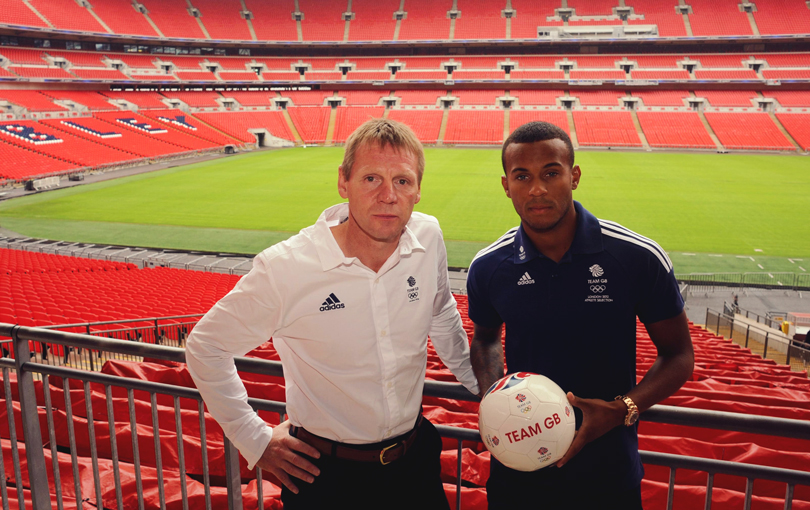
The three overage players were Ryan Giggs, Craig Bellamy and Micah Richards. It didn't scream excitement.
Nevertheless, just seven of Psycho's endless list declined. A slightly shorter long-list of 80 remained by April 2012 – presumably ahead of a Judge's Houses stage – before that was whittled down to 35, then finally just the 18-man squad a month before the tournament, where 13 Englishmen and five Welshmen remained.
Just how much anticipation can you garner from the England under-23 side, plus a few Welshmen, including a 38-year-old (who we'd long given up wishing was English)? Perhaps that's a fault of the youth tournament format but the three overage players were Ryan Giggs, Craig Bellamy and Micah Richards. It didn't scream excitement.
As all good Brits do in the summer, the squad headed off for Marbella for pre-tournament preparation. Each player was given a tentative 45 to 75 minutes in a friendly against Mexico, which Team GB duly lost 1-0, before the team made their UK debut at the Riverside Stadium in Middlesbrough in another friendly – another loss, as Brazil beat them 2-0.
Looking back with the hindsight of Euro 2020, it's easy to see a complete lack of chemistry – and not just on the pitch. There was more that divided this group than bound them – literally, warring football associations – with the FA appearing to take this entire fortnight as an exercise to give young England players development at a sort-of-major tournament. A 1-1 bore draw with Senegal later, in Great Britain's first Olympic match for 62 years, the mechanics of this whole concoction were in question.
Team GB's participation in football was never a competition on the pitch – it was one in which they had to convince everyone that their very existence was worth the aggro
Then again, two wins will change momentum and mood. The United Arab Emirates were beaten 3-1, with captain Giggs opening the scoring before Daniel Sturridge netted the only goal against Uruguay. There were elements of this GB side that were fun to watch; Joe Allen and Aaron Ramsey were like insects in midfield, buzzing across pitch with an energy of youth that they still have most of left. Sturridge, meanwhile, looked like a star in the making.
It just wasn't cohesively melded together. Plus, a London Olympics came at the wrong time for British football, really: between harvests of thrilling young footballers, for all four nations who could have been involved.
London 2012 didn't exactly end for Team GB in the only way that it could - but a way that anyone who watched them could have predicted. A late equaliser against South Korea preceded a penalty shootout loss, to confirm that it's not solely an English gene. Five games, two wins, two losses and a draw hardly coated the gang in glory: it was never going to force sceptical Home Nations into u-turning come Rio in 2016, either.
And that was the battle that Stuart Pearce really faced. Team GB's participation in football was never a competition on the pitch – it was one in which they had to convince everyone that their very existence was worth the aggro.

OLYMPIC STORIES From fallout to triumph: How Nigeria stunned the world to win Olympic gold in 1996
In the end, it proved not to be. The football was dull. A second-round exit felt oh-so-British. There wasn't even a "you had to be there" postcard moment for the punters to take home.
When talks began with baited whispers about trying again, the Scottish FA smacked their English cousins back, claiming they had “underestimated the strength of feelings from the other Home Nations”. And that was perhaps putting it mildly.
It was one of many underestimations. And to think back to Beckham, blissfully unaware of the melee he was avoiding, by delivering the Olympic torch instead… he wasn't the only British footballing icon to find himself up a river in 2012 – but even then, it made a lot more sense than Team GB's adventure.
More Olympics stories
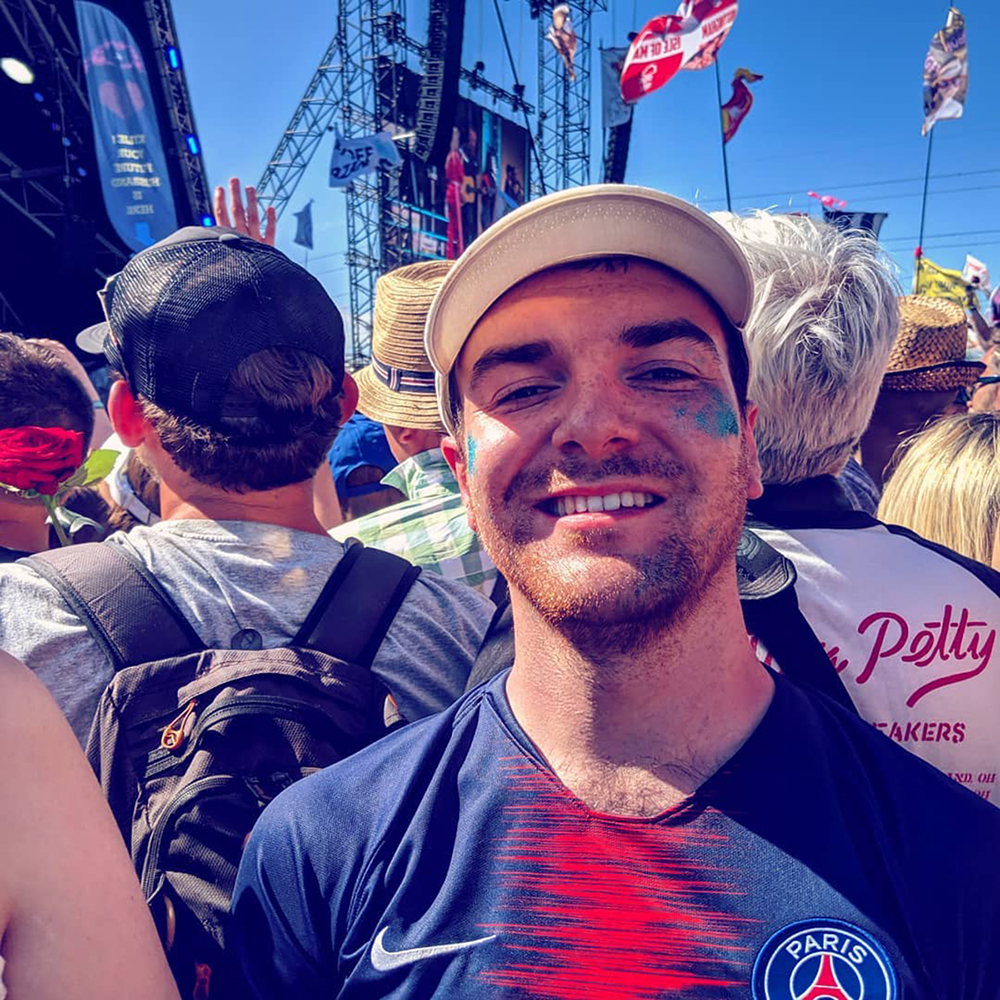
Mark White has been at on FourFourTwo since joining in January 2020, first as a staff writer before becoming content editor in 2023. An encyclopedia of football shirts and boots knowledge – both past and present – Mark has also represented FFT at both FA Cup and League Cup finals (though didn't receive a winners' medal on either occasion) and has written pieces for the mag ranging on subjects from Bobby Robson's season at Barcelona to Robinho's career. He has written cover features for the mag on Mikel Arteta and Martin Odegaard, and is assisted by his cat, Rosie, who has interned for the brand since lockdown.


